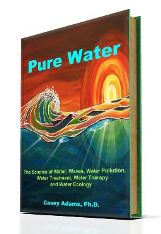Half of Kids Dehydrated – Urine Color Test Validated

Thirst is serious business, especially in children who need water for brain development.
Dehydration in children runs rampant according to scientific research. More than half of kids are dehydrated.
In this article
Thirsty kids
Parents might suspect their kids might be dehydrated. And often they are, new research finds. In fact, a recent study from the U.S. Centers for Disease Control has determined that more than half of American kids are chronically dehydrated.
The research from Harvard University also found that a full quarter of children between six and 19 years old don’t drink any water at all. They might have fluid intake in sodas and milk and some foods, but no water. Nada.
The researchers studied a total of 4,134 kids – derived from data from the 2009-2012 National Health and Nutrition Examination Survey for kids between the ages of six to 19.
The study found that 54 percent of all the kids were chronically dehydrated.
Not only that. There are gender and race differences in dehydration among kids. According to the study, boys have a 76 percent greater likelihood of being dehydrated. And African Americans were 34 percent more likely to be dehydrated compared with Caucasian Americans.
According to the Institute of Medicine, kids in these ages should drink between two and three quarts per day – that is between 64 and 96 ounces.
Learn how to calculate water requirements for kids and adults based upon weight.
Lead researcher, Dr. Erica Kenny commented on this recommended total intake:
“That’s total water, so that can be from any beverages — any water that’s in your food like soups, juicy fruits and vegetables, things like that.”
The question parents might ask is whether this is a big deal. Will kids really have problems if they are dehydrated? Dr. Kenny also discussed this:
“This doesn’t mean we’re saying kids are dropping like flies or that they’re very seriously dehydrated and need to go to the hospital or anything like that,” Kenney says. But even mild dehydration can affect children’s fatigue levels, mood and possibly their ability to learn.”
Urine color test validated
While some will say urine color has nothing to do with dehydration, this is not consistent with the research.
In a related recent study from the University of Arkansas, researchers validated that urine color can be used to gauge a child’s hydration level.
Scale for measuring dehydration
The researchers determined an eight-point color scale – with the darker colors relating to relative degrees of dehydration. The researchers utilized the scale to test kids between eight- and 14-years old.
The study found that this eight-point scale — again with darker color indicating greater dehydration — was a valid method to gauge a child’s level of dehydration.
While having this scale might be handy, we can also easily develop our own scale. Drinking the recommended water for a few days will establish a baseline color for adequate water intake. Then a darker color will reveal inadequate water intake.
Learn everything you always wanted to know about water – including water filtration options, chlorination, fluoridation, water pollutants, the many different forms of water and much more.
REFERENCES:
Kenney EL, Long MW, Cradock AL, Gortmaker SL. Prevalence of Inadequate Hydration Among US Children and Disparities by Gender and Race/Ethnicity: National Health and Nutrition Examination Survey, 2009-2012. Am J Public Health. 2015 Aug;105(8):e113-8. doi: 10.2105/AJPH.2015.302572.
Got Water? Most Kids, Teens Don’t Drink Enough. NPR. June 11, 2015.
Kavouras SA, Johnson EC, Bougatsas D, Arnaoutis G, Panagiotakos DB, Perrier E, Klein A. Validation of a urine color scale for assessment of urine osmolality in healthy children. Eur J Nutr. 2015 Apr 24.















